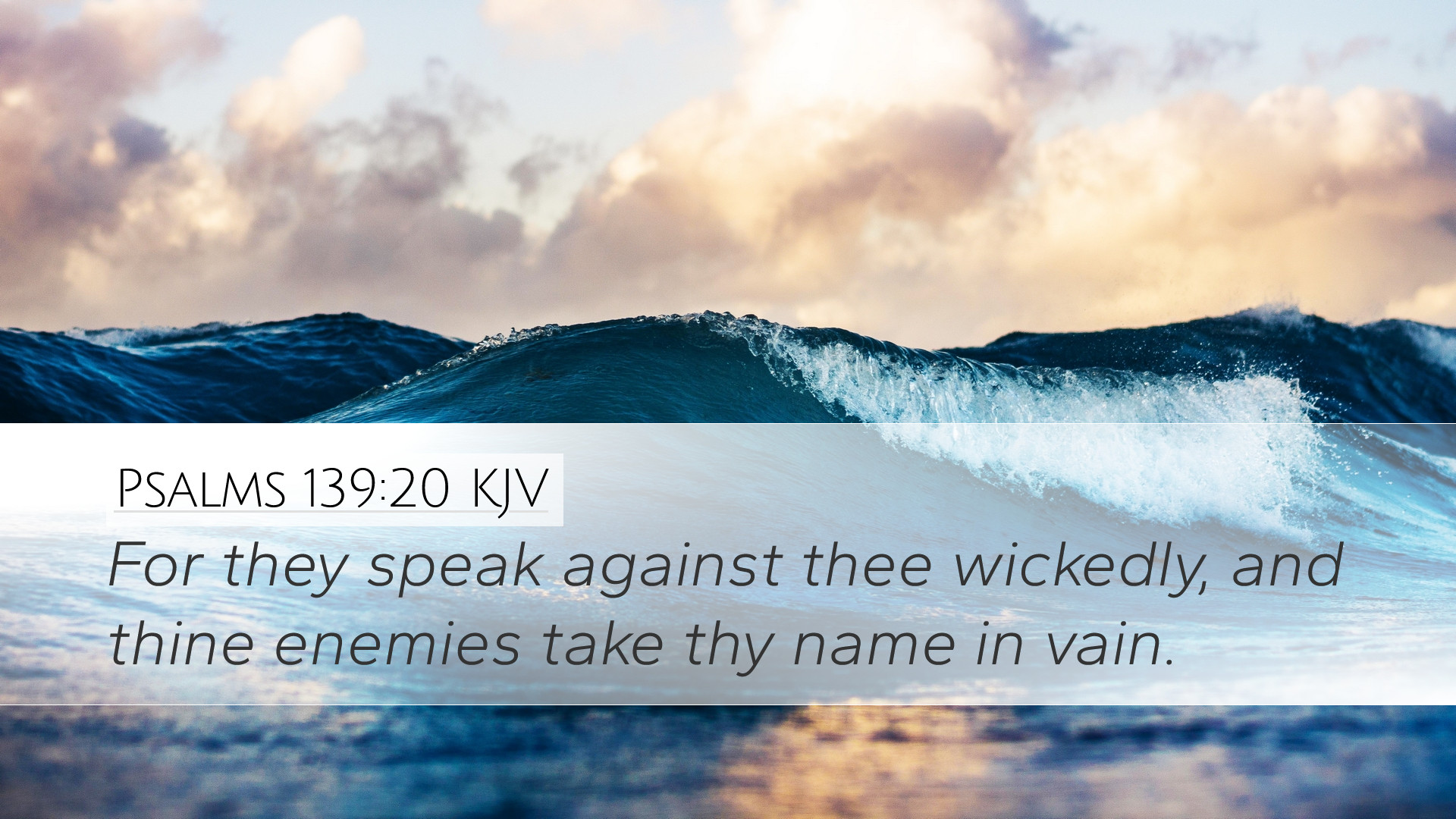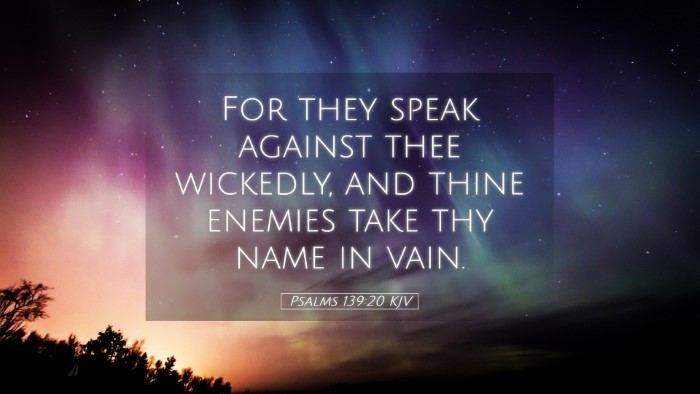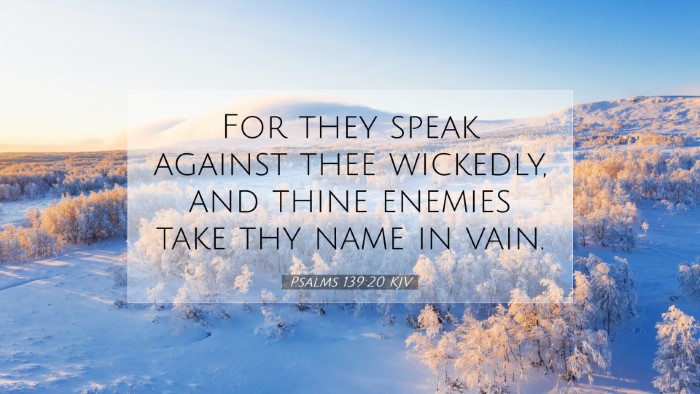Psalms 139:20 Commentary
Psalms 139:20: "For they speak against thee wickedly, and thine enemies take thy name in vain."
Introduction
This verse from Psalms 139 encapsulates the psalmist's deep concern for God's honor amidst the backdrop of human wickedness. Notably, it addresses the reality of opposition faced by God from those who speak ill of Him. In examining this verse, insights from various public domain commentaries provide a rich tapestry of understanding that can benefit pastors, theologians, and students alike.
Contextual Analysis
The context of Psalm 139 is a profound meditation on the omniscience, omnipresence, and omnipotence of God. This verse specifically highlights one of the more distressing consequences of this truth—the response of those who oppose God. When considering the implications of speaking against the Divine, it is critical to acknowledge the seriousness of this offense.
Insights from Matthew Henry
Matthew Henry emphasizes that this verse is reflective of the enemies of God and their audacity to speak maliciously against Him. He notes that such speech is not merely a personal attack but rather an affront to God's very nature and character.
- The Nature of Wicked Speech: Henry categorizes the words of the wicked as being not just false but harassing and contemptuous towards God.
- Theological Implication: He suggests that to speak against God is to act against the very source of goodness and truth, thereby highlighting the moral ramifications of disparaging divine character.
- Encouragement for Believers: Henry encourages believers to remain steadfast, recognizing that God’s omniscient presence assures them of His protection amidst such adversities.
Insights from Albert Barnes
Albert Barnes, in his commentary, offers a comprehensive exploration of the implications of taking God's name in vain. He links the phrase directly to the concept of blasphemy and its severe consequences.
- Blasphemy Defined: Barnes defines the speaking against God as a significant sin, one that demonstrates a deep-seated rebellion against divine authority.
- Call for Reflection: He urges readers to self-reflect and examine whether their own words align with their professed faith, presenting a challenge to live uprightly and honorably before God.
- God’s Justice: Barnes assures believers that while enemies may speak against God, divine justice will ultimately prevail, reaffirming the hope that God will not allow His name to be dishonored indefinitely.
Insights from Adam Clarke
Adam Clarke brings additional nuance to the discussion by exploring the intention behind the speech of the enemies of God. His analysis focuses on the heart posture of those who speak against God.
- Motivation of the Heart: Clarke suggests that such wicked speech arises from a darkened heart, one that does not recognize its Creator's majesty and holiness.
- Historical Application: He contextualizes the psalmist’s lament by referencing historical figures who spoke against God, emphasizing that opposition to God is not a new phenomenon but a recurring theme throughout history.
- The Nature of God’s Response: Clarke posits that while these enemies may thrive temporarily, their fate is sealed under God’s sovereign plan, offering a comforting assurance to the faithful.
Theological Reflections
From the insights gathered, several theological reflections emerge that deepen our understanding of Psalms 139:20:
- The Sovereignty of God: This verse underlines God’s sovereignty over all creation, including those who oppose Him. The acknowledgment of God’s power remains crucial for understanding the Christian faith.
- The Gravity of Blasphemy: The seriousness of taking God’s name in vain is profoundly highlighted, challenging believers to uphold the sanctity of God's name in their speech and actions.
- The Role of the Faithful: Believers are called to be a voice of truth, countering the rhetoric of the wicked through lives that reflect God’s goodness and grace.
Practical Applications
For pastors, students, and theologians, the verse serves as a springboard into practical applications:
- Guarding Our Speech: There is an invitation to examine our own words, ensuring they represent Christ and uphold His honor.
- Engaging in Prayer: The necessity of interceding for those who are lost and speaking against God, revealing compassion rather than condemnation.
- Promoting a Culture of Honor: Encouraging communities of faith to foster a culture that honors God’s name in both public discourse and private conversation.
Conclusion
Psalms 139:20 stands as a poignant reminder of the clash between divine holiness and human wickedness. This commentary, drawn from respected public domain scholars, enriches our understanding and responses to the character of God in the face of opposition. As we meditate on this verse, may we commit ourselves to honoring God in our speech, reflecting His glory in a world rich with challenges.


